Books
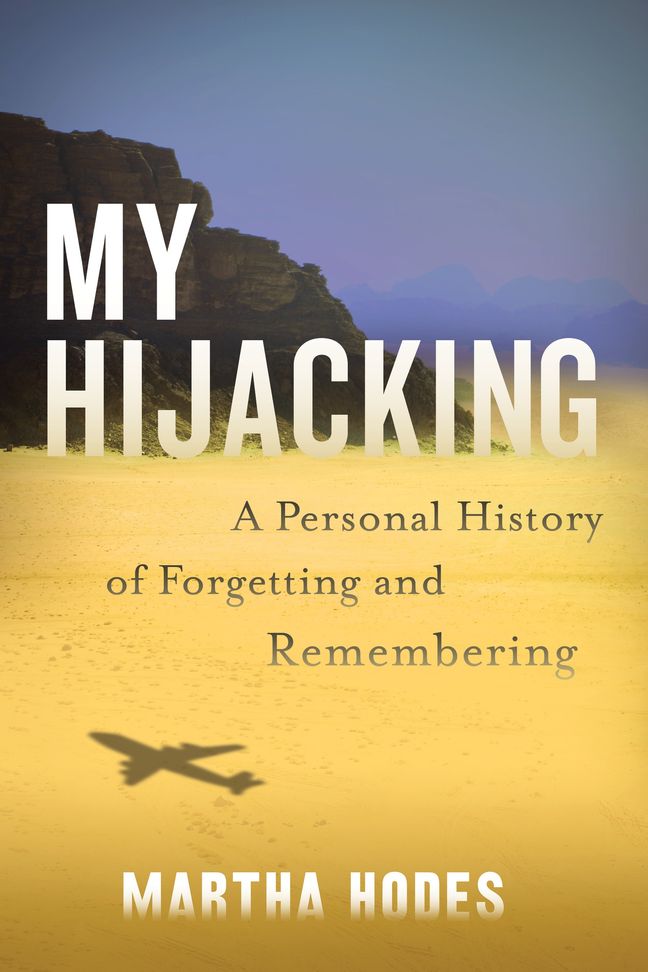
My Hijacking
HarperCollins
On September 6, 1970, twelve-year-old Martha Hodes and her thirteen-year-old sister were flying unaccompanied back to New York City from Israel when their plane was hijacked by members of the Popular Front for the Liberation of Palestine and forced to land in the Jordan desert. Too young to understand the sheer gravity of the Israeli-Palestinian conflict, she coped by suppressing her fear and anxiety. Nearly a half-century later, her memories of those six days and nights as a hostage are hazy and scattered. Drawing on deep archival research, childhood memories, and conversations with relatives, friends, and fellow hostages, Martha sets out to re-create what happened to her. Learning about the lives and causes of their captors, the sisters pondered a deadly divide that continues today. A thrilling tale of fear, denial, and empathy, My Hijacking sheds light on the hostage crisis that shocked the world, as the author comes to a deeper understanding of both what happened in the Jordan desert in 1970 and her own fractured family and childhood sorrows.
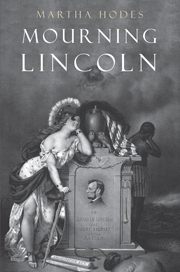
Mourning Lincoln
Yale University Press
The news of Abraham Lincoln’s death on April 15, 1865, just days after Confederate surrender, astounded the war-weary nation. Massive crowds turned out for services and ceremonies. Countless expressions of grief and dismay were printed in newspapers and preached in sermons. Public responses to the assassination have been well chronicled, but this book is the first to delve into the personal and intimate responses of everyday people—Northerners and Southerners, soldiers and civilians, black people and white, men and women, rich and poor. Through deep and thoughtful exploration of diaries, letters, and other personal writings penned during the spring and summer of 1865, Martha Hodes captures the full range of reactions to the president’s assassination—far more diverse than public expressions would suggest—telling a story of shock, glee, sorrow, anger, blame, and fear. Hodes brings to life a key moment of national uncertainty and confusion, when competing visions of the country’s future proved irreconcilable and hopes for racial justice in the aftermath of the Civil War slipped from the nation’s grasp.
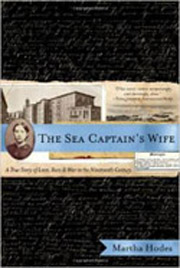
The Sea Captain’s Wife
A True Story of Love, Race, and War in the Nineteenth Century
W. W. Norton
The Sea Captain’s Wife brings readers into the extraordinary world of Eunice Connolly. Born white and poor in New England, Eunice followed her first husband to the Deep South and soon found her relatives fighting on opposite sides of the Civil War. Back in New England, Eunice and her children struggled to get by—until Eunice fell in love with a well-to-do black sea captain, married him, and moved to his home in the British Caribbean. Tracking every lead in a collection of 500 family letters, Hodes retraced Eunice’s footsteps and met descendants along the way. The Sea Captain’s Wife takes up grand themes of American history—war, racism, freedom—and along the way illuminates the lives of ordinary people in the past.
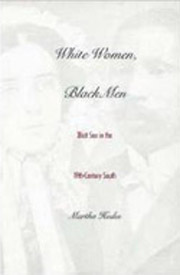
White Women, Black Men
Illicit Sex in the Nineteenth-Century South
Yale University Press
White Women, Black Men is the first book to explore the history of one of the most explosive categories of illicit sex in American history. Striking at fundamental understandings of race and sexuality, Hodes demonstrates that only with the advent of black freedom after the Civil War did sex between white women and black men provoke extreme white alarm. Following the upheaval of war and emancipation, transgressors were targeted by the Ku Klux Klan in a pattern of violence that culminated in unprecedented white terrorism by the end of the century.
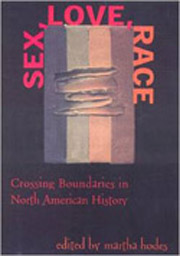
Sex, Love, Race
Crossing Boundaries in North American History
New York University Press
Sex, Love, Race is a collection of 24 essays that span the colonial era through the 1960s, encompass every region of the nation, and uncover histories of people of Indian, European, African, and Asian descent. The contributors together partake in ongoing scholarly debates about the history of sexuality, and the history and meaning of race and racial categories.
